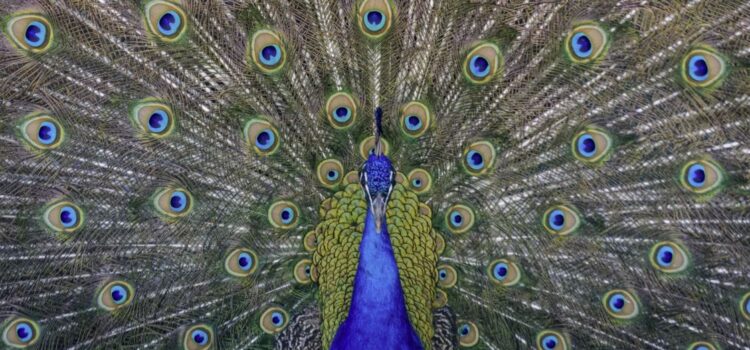

This article is an excerpt from the Shortform book guide to "Why We Get Sick" by Randolph Nesse and George Williams. Shortform has the world's best summaries and analyses of books you should be reading.
Like this article? Sign up for a free trial here .
What do men and women look for in a mate? How does evolution affect sexual behavior? How is jealousy a construct of evolution?
Human babies take a long time to develop after birth. This long period of child care requires participation from females and males which has created some mating-related behaviors. Everything from mate selection, to jealousy, to testing loyalty, to how society perceives promiscuity comes from evolution.
Keep reading for more on evolutionary relationships.
Evolution and Relationships
The skulls of humans are relatively larger compared to primate relatives and ancestors. The size of the human skull allows for a larger, more intelligent brain. However, how large the fetus’s skull can be is limited by the size of the female birth canal. Human children are therefore born with under-developed brains, and they require a long period of care to become self-sufficient and for their skulls to continue growing outside of the mother. Contrast this to other animals like baby deer, who are much more self-sufficient when born. This is one of the reasons for evolutionary relationships in humans.
This long period of childcare requires the participation of both males and females, which has engendered the following mating-related behaviors:
Mate Selection
From a biological point of view, males and females want different things in relationships.
Males want women who are:
- Of fertile age
- Attractive, which suggests good genes
- Nurturing, which will lead to better care of the child
- Uncommitted to others. Ideally the woman has had no prior children and might even be a virgin. This ensures the woman’s attention is focused on the male’s children.
- Sexually loyal. The male doesn’t want the female to have sex with other men, which may lead the male to take care of a child that is not his.
Females want men who are:
- Capable of providing resources for the mother and children
- Are faithful to the family, thus participating in childcare for long term and not splitting resources with other women.
- Capable of providing good, competitive genes for their offspring.
Over time, the selection pressure may cause species to develop traits that are not all that practically useful. Male peacocks have large plumes of feathers that serve no purpose other than reproduction, and may actually hamper their survival among predators.
Sexual Behavior
Some female primates change color when they’re ovulating, signaling that it’s mating season.
In contrast, female humans conceal when they’re ovulating—there’s no external difference between ovulating women and non-ovulating women. This has a number of benefits:
- Hiding ovulation prevents the male mate from being absent most of the time and returning only to reproduce. Instead, if he wants to have more offspring, the male needs to stick around and provide for the family.
- Hiding ovulation prevents rival males from noticing that the female is ready to mate. They therefore don’t swoop in opportunistically. This also protects the female from unwelcome attention.
- Women themselves don’t know when they’re ovulating. If they did, they might avoid their mate when they’re fertile, if they don’t want to have more children and are afraid of the pain of childbirth.
Testing Relationships for Loyalty
Both women and men are concerned about the loyalty of their mates. Women want men to provide for their family, and men want women to be faithful so they don’t bear the children of other men.
People in relationships might therefore want to test their relationships for loyalty. They can provoke their partner with arguments or instigate jealousy, and see if the partner sticks around and stays committed.
If true, then this suggests that relationships where the parties are unsure of each other’s capacity for commitment tend to be more volatile, with more arguments.
Jealousy and Evolution
The father can’t guarantee the child is his, while the mother can. Therefore, the man is fearful of being cuckolded and raising a child that is not his.
In response, the father shows jealousy and a threat of anger. This is a response that discourages other mates from intruding, and dissuades the mother from straying.
Sexual jealousy is so strong that it’s been institutionalized in many cultures. In China, women’s feet were bound as children to limit their mobility and independence. It was tradition to demonstrate virginity on wedding night by observing blood on the marital sheets. The authors say that for much of history, in nearly all societies, men created social institutions to control female sexuality.
This might also point to why there’s a modern double standard of sexual activity. Females who are promiscuous are chastised by males (since they fear cuckolding), and by women (for possibly drawing away men). In contrast, men are admired for their sexual conquests, because it makes them more appealing as possible mates.

———End of Preview———
Like what you just read? Read the rest of the world's best book summary and analysis of Randolph Nesse and George Williams's "Why We Get Sick" at Shortform .
Here's what you'll find in our full Why We Get Sick summary :
- Why evolution hasn't rid humans of all diseases
- How reproductive fitness is more important than overall survival
- How you evolved to dislike the sound of a baby crying






